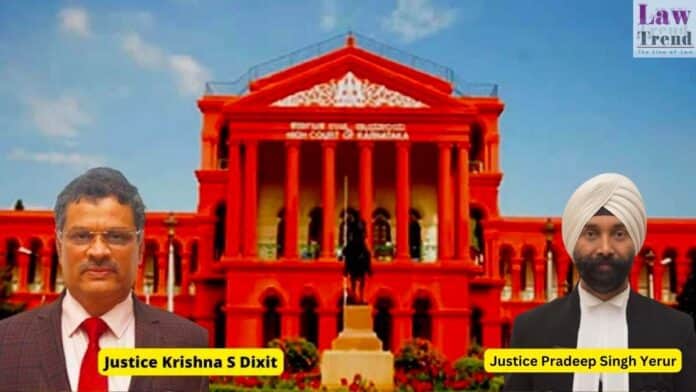In a recent decision, the Karnataka High Court denied bail to an accused individual charged in the 2020 Bengaluru riots, emphasizing the primacy of public safety and the collective interest of society over individual liberty.
The Division bench of Justice Krishna S. Dixit and Justice Pradeep Singh Yerur declined to apply the well-known maxim of “bail is the rule and jail is an exception” as enunciated by the Supreme Court.
The court stated that this principle must be disregarded in cases involving offenses under special statutes of significant importance, such as the one at hand.
The court highlighted three key reasons for its decision. Firstly, the bench noted that the Parliament, with its accumulated wisdom, has enacted clauses in the Unlawful Activities (Prevention) Act, 1967, which severely restrict the grant of bail. Secondly, the particular statute in question also includes a ‘negative burden’ clause, placing the onus on the accused, contrary to the usual rule where the burden of proof lies on the prosecution. Lastly, the court stated that the dicta of “bail are the rule and jail is an exception” originated several decades ago in cases governed by the Indian Penal Code of 1860 and that times have significantly changed since then.
Rejecting the accused’s arguments invoking the sanctity of basic human rights and the doctrine of the presumption of innocence, the court pointed out that the negative burden clause under the 1967 Act challenges the immediate application of the doctrine of innocence. The bench expressed doubts about readily invoking the doctrine of innocence in such a case, given the severe and undesirable consequences that could result from releasing an undertrial involved in a heinous incident of this magnitude.
The court supported the Special Public Prosecutor’s contention that in serious matters like this, where the National Investigation Agency (NIA) has filed a charge sheet after a thorough investigation, the court should refrain from granting bail. The NIA presented substantial evidence, including videographs, photographs of the incident, mobile phone call records, mobile tower records, weapons used, and statements of eyewitnesses, including injured police officials, establishing the appellant-accused’s active participation in the horrifying incident.
Furthermore, the court agreed with the prosecution’s submission that in bail matters, the court must consider not only the rights and liberties of the accused but also the threat to the safety of civil society if offenders of this kind are released. Citing the Supreme Court judgment in the case of Sunil Roy vs. the State of UP (1998), the bench acknowledged the importance of human rights recognized by the apex court but ultimately concluded that justice would be better served by keeping the accused in confinement.
Also Read
Recognizing that several accused individuals have already been denied bail and are currently in judicial custody, the bench expedited the trial and called for a speedy trial on a day-to-day basis. The court emphasized that these individuals have a fundamental right to speedy justice and highlighted the burden carried by the trial judge of the Special Court.
“That cause of justice would be served more by continuing him in confinement than setting him free. This being said, we hasten to add that the subject case needs to be expeditiously tried since there are several accused persons, who have suffered rejection of their bail petitions and as a consequence, are continuing in judicial custody. They have a Fundamental Right to speedy justice, which cannot be lost sight of. In our view, this is a fit case for a speedy trial, if possible, on day to day basis. We are also aware of the burden that the learned trial Judge of Special Court shoulders” the court noted,
In the given circumstances, this Criminal Appeal lacks merits and was therefore dismissed. “However, it should be noted that the observations made in this decision pertain only to the disposal of the appeal and should not impact the ongoing trial of the offenses or the orders to be made by the lower court in that regard.” the court stated.
Case Name: Imran Ahmed And National Investigating Agency
Case No.: CRL.A.NO.124/2023
Bench: Justice Krishna S. Dixit and Justice Pradeep Singh Yerur
Order dated: 29.05.2023




